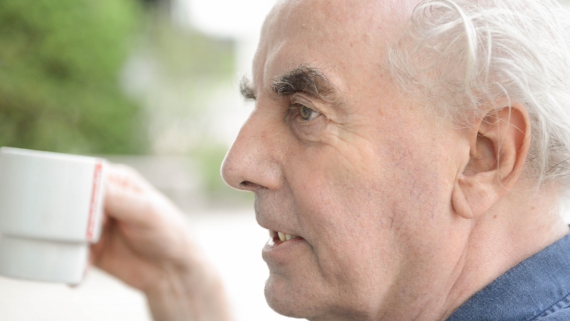In the west above Lake IJssel, the sky clouds up and sudden gusts of rain blow over the fields in Almere. “Cabbage weather: finally!” Tom Saat smiles. Autumn has come too late for headed cabbage, the farmer says. “But nature doesn’t cater to our orders. Come on guys, time to harvest.
Cabbage grows best in a couple weeks of autumn weather, Saat explains a little later. The combination of mild temperatures during the day and cold nights makes for larger cabbage. “Summer just went on too long this year, and there’s nothing we can do about it. But I will say this: smaller size means concentrated flavour.” Eliza Glasbeek lets out a sigh at the sight of the relatively small cabbages. Last week when we harvested the red cabbage, we saw that this year, Machandel won’t have the volume we had counted on.”Our customers won’t be able to eat as much sauerkraut this time around”, the Director groans. “The flavour will have to make up for the supply.” The disappointing harvest illustrates the interdependence between grower and processor. Both of them know that in the end, nature has the last word.
The collaboration between Machandel and Tom Saat goes back twenty years. Though the Flevopolder is home to other growers who share an even longer history with Machandel, Saat will always be special. In the mid-1990s, he and his wife Tineke founded ‘‘De Stadsboerderij’ (‘The City Farm’)’, right in the middle of Almere’s residential area. It was an experiment the city was keen to cooperate with, in the expectation that De Stadsboerderij would help bridge the gap of incomprehension between residents and farmers. “From the outset, Tineke and I envisioned a mixed business, a biodynamic farm where the cycle of nature determines our company operations. We earn our living from what comes out of the ground, and we take care of it the best we can.”

In the shelter of the deep litter, Tom Saat shows us his Marchigiana cows - &ldquo a natural breed that does not require antibiotics. In the summer, they graze on the natural reserves here surrounding Gooi Lake. And in the winter, when they are kept inside, we feed them organic corn, alfalfa, clovers and herb-rich grass from our own fields. The manure, made with the right amount of straw, is our ‘black gold’, which we use on our farmland.” Throughout Almere, the urban farmer has 120 hectares of farmland on which he grows peas, pickled onions, pickles, sugar corn, squash and cabbage for Machandel. Furthermore, Saat grows carrots and red beets for his farm store at home where the beef is also sold. On Saturdays, the grounds go from being De Stadsboerderij to a busy marketplace where other biodynamic producers also sell their goods.
De Stadsboerderij’s work method fits perfectly into Machandel’s vision, says Eliza Glasbeek. “From the outset, we established contact and over the years, that relationship has only grown stronger. For us, it’s important to have reliable suppliers in the Haulerwijk area to which we can coordinate the continuity of our sales. ” Vice versa, the sustainable collaboration also offers De Stadboerderij livelihood security, Saat explains. “It lays a foundation for your company; as a farmer, you know what you’re up against. Now I can look further than one year in the future and thus plan my crop rotations better, which is better for the soil. In the end, everyone wins - including the consumer.”
The interdependence enables optimal harvests of difficult crops like pickled onions, Glasbeek underlines. “How can we create a high-quality, tasty product? That is what it’s all about. We listen to Tom, Tom listens to us, and we manage together. And even then, sometimes we are disappointed, like we are now with the headed cabbage. But you know, nature has its own plan, which we have to respect.”